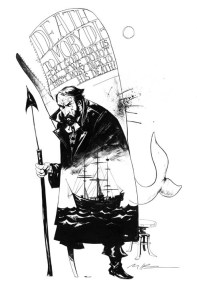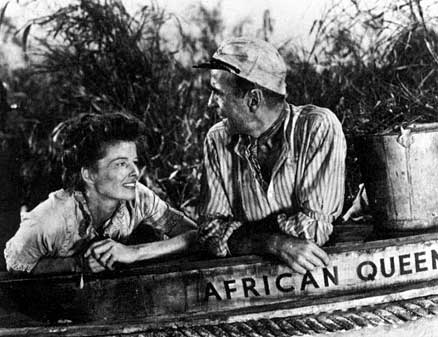In his essay “Secrets and Narrative Sequence,” Frank Kermode relates how a critic accused Joseph Conrad of writing Chance twice as long as it needed to be. “Conrad replied sarcastically that yes, given a certain method, it ‘might have been written out on a cigarette paper.’”
Books naturally contain more writing than the plot requires. Kermode expands:
“even in a detective story, which has the maximum degree of specialized “hermeneutic” organisation, one can always find significant concentrations of interpretable material that has nothing to do with clues and solutions and that can, if we choose, be read farther than simply discarded, though propriety recommends the latter course.”
Also,
“Good readers may conspire to ignore these properties, but they are relevant to my main theme, which is the conflict between narrative sequence (or whatever it is that creates the ‘illusion of narrative sequence’) and what I shall loosely, but with pregnant intention, call ‘secrets.’”
Kermode’s essay primarily concerns itself with Conrad’s Under Western Eyes, and “the kinds of narrative upon which we conventionally place a higher value… [where] there is much more material that is less manifestly under the control of authority, less easily subordinated to ‘clearness and effect’ more palpably the enemy of order, of interpretative consensus, of message.” A.K.A., more secrets. In this light, ‘high’ literature is less a category than a tendency to problematize, interrupt or discard genre conventions which neatly guide the narrative from trope to trope, and finally to the corresponding take-away (love triumphs over all, crime doesn’t pay, ride off into the sunset, never trust a woman, etc.) Some authors, like James Joyce in Ulysses, conscientiously use secrets to write “a book to keep the professors busy.” Other, more dedicatedly popular writers, (Kermode especially cites Conrad, James Joyce, and E.M. Forster,) are “keenly aware of other possibilities, are often anxious to help readers behave as they wish to; they ‘foreground’ sequence and message. This cannot be done without backgrounding something, and indeed it is not uncommon for large parts of a novel to go virtually unread…”
Like a detective story, or a thriller, love stories demand certain ‘backgrounding’ of insignificant and ‘foregrounding’ of significant material, but by slightly different rules. Engaged readers sift through romance novels for evidence: providential signs, compatibility, the gauge of true happiness. This evidence is all that prevents readers from going insane over misunderstanding upon misunderstanding, obstacle upon obstacle. In mystery novels, there is a pleasure in the ambiguity, and an expectation of a surprise ending. Not so with a romance novel, where readers are encouraged to stake out their preferred ending from the get-go. Every twist is chained to an anticipated conclusion. Failure to get the protagonists together is at best a tragedy, and at worst, an unsatisfactory failure on the part of the author, who could not figure out the ‘true ending’ the characters deserve. (Endings rife with life-affirming melancholy sit somewhere in the middle, and I suppose have fewer fans, and are remembered less well.)
This makes for a stressful, if rewarding reading experience. When the ending is truly in question, all ‘secrets’ which contradict the lovers’ eventual union must be ignored or under-read—otherwise they are distressing. These secrets are not the villainies of the plot, (a sympathetic third leg to the love-triangle, well-meaning family intervention, yet another innocent misunderstanding,) as these elements promote sequence rather than distract from it. Secrets interrupt and cancel the flow toward eventual togetherness, and cast doubt on its necessity. E.M. Forster’s A Room With A View is rife with them.
A Room With A View unambiguously champions the union of Lucy and George, two young people who meet as tourists in Florence and are troubled by the repressive strictures of Edwardian society. The book triumphs in that their relationship is overtly odd, surprising yet recognizable, and quite beautiful; the ‘secrets’ of A Room With A View are not the most interesting part of the book, or what can be said about it. However, like thorns on a rose stem, its secrets cut into the romantic ending with suggestions of frustration, loss and violence. Even more intriguingly, when Forster returned to the characters in an ‘appendix’ epilogue he wrote fifty years later, he chiefly expands upon the existence of these darker elements.
Spoiler alert: this essay mostly concerns itself with the ending of a short and very wonderful book, which is worth reading. It is available all over Kindle and the internet for free, and in most used bookstores for about a dollar. If a book is still too much of a commitment, there is a fantastic and simple, (and again, short,) film adaptation by Merchant Ivory on NetFlix InstantWatch, even though it excises and alters the ‘secretive’ parts of the book, in accordance to what Forster ‘foregrounded.’ Knowing the ending doesn’t completely destroy the pleasure of reading the book. At the same time, I’m afraid that the following interpretation could spoil the goodness of the union of George and Lucy, something I desperately hoped for while reading A Room With A View, even though I had a good idea that it was going to happen anyhow.
A Room With A View is told from third person perspective, with limited access to the internal thoughts of the main characters. Readers are privileged with the viewpoints of some characters more than others, most often seeing inside the head of Lucy Honeychurch, the conflicted female protagonist, and the Reverend Mr. Beebe. Beebe is Lucy’s local vicar, who she esteems greatly, and who observes Lucy’s ‘progress’ throughout the book. Lucy struggles between worlds—the world of propriety and English manners which she understands and values, and the world of raw feeling, passion and human generosity, which confounds and fascinates her. She participates in the latter mutely, unconsciously, when she plays the piano. As Mr. Beebe famously observes, “”If Miss Honeychurch ever takes to live as she plays, it will be very exciting both for us and for her.” If Lucy is the site of the book’s conflict, and voices Forster’s own struggles, Mr. Beebe is well-meaning if sardonic witness, and Forster’s observation of his own self. In Part Two, readers also get access into Cecil, Lucy’s fiancé, a dandyish dupe she eventually leaves. Readers barely glimpse into the workings of George, Lucy’s paramour, until the last few pages, or Charlotte, Lucy’s cousin, another central character.
Lucy creates most of the obstacles in getting together with George—she rationalizes, underplays and represses her feelings for him. A Room With A View is a strange love story where the heroine is not in touch with some great passion she finds impossible to resist—Lucy does a great job of resisting it, and making herself unhappy. Lucy is a brilliant portrait of a young woman caught in the crossfires of her responsibilities to herself and to others, and unsure of the motivations of her unconscious, an idea just formulated at the time of the book’s writing. When George’s father, Mr. Emerson, a philosophic middle class Englishman with poor manners and eccentric habits, declares to Lucy almost out of the blue,
“Now don’t be stupid over this. I don’t require you to fall in love with my boy, but I do think you might try and understand him. You are nearer his age, and if you let yourself go I am sure you are sensible. You might help me. He has known so few women, and you have the time… You are inclined to get muddled, if I may judge from last night. Let yourself go. Pull out from the depths those thoughts that you do not understand, and spread them out in the sunlight and know the meaning of them. By understanding George you may learn to understand yourself. It will be good for both of you.”
Of course there’s wisdom in Mr. Emerson’s observations, but his commentary is impertinent, and agressive even by today’s standards. “Don’t be stupid,” whether said gently or violently, is a rebuff, and Mr. Emerson is only responding to something he believes Lucy has started to say, when she hadn’t said anything at all. Mr. Emerson alludes to their interaction the previous night. If Lucy had been muddled the night before, she had also been observant and open-minded, quietly cheering on the well-meaning Emersons as they navigated a snafu with her cousin Charlotte, when they attempted to do an unasked favor. Mr. Emerson does not just ask for Lucy’s sympathy, which he has, or her understanding, which he solicits, but her allegiance.
A Room With A View is overtly a story about Lucy’s self-realization, dramatized through her admission of love for George. Underneath this, A Room With A View is also a story about the conquest of a girl’s inner life. As set up by Mr. Beebe in the opening pages. “I differ from [Mr. Emerson] on almost every point of any importance, and so, I expect— I may say I hope— you will differ.” It is not as if one ‘father’ figure has monstrous views about Lucy’s future. Both claim to understand Lucy; both know her very little. Yet the reader accesses Mr. Beebe, the loser of the fight, and Cecil, who also loses Lucy, and Lucy—who arguably loses herself.
A Room With a View has a rather cryptic happy ending. Lucy never admits, “I love George” of her own accord. In the penultimate scene, she finally acquiesces to Mr. Emerson’s relentless insistence that she does, through anger and tears, and finally a humiliated but happy acceptance. Not only does Mr. Beebe witness and play an active role in this argument, he expresses his grief that Lucy will marry George, (as opposed to remaining unmarried forever, which was his expressed preference,) and then is described to have “walked out and left them.” Mr. Emerson then says mystically,
“Ah, dear, if I were George, and gave you one kiss, it would make you brave. You have to go cold into a battle that needs warmth, out into the muddle that you have made yourself; and your mother and all your friends will despise you, oh, my darling, and rightly, if it is ever right to despise. George still dark, all the tussle and the misery without a word from him. Am I justified?” Into his own eyes tears came. “Yes, for we fight for more than Love or Pleasure; there is Truth. Truth counts, Truth does count.”
Lucy replies, consenting, “You kiss me, you kiss me. I will try.” This section completes the strange permeability between George and his father, and the lack of distinction between the two. It is no small wonder that this scene was shortened, fragmented and censored in the film adaptation, to better express the victory of Eternal Love between two young people.
In the final chapter, George and Lucy elope and return to the Florentine pension where they met. The reader is not greeted with a passionate, an exhilarated, or an active Lucy, but a Lucy who is darning George’s sock. For the most part, the reader is locked out of her thoughts. George is repeatedly described as a child, or in danger of contracting rheumatism, like his aged father. Perhaps Mr. Emerson was not recruiting a love for the mother-less George, who knew so few women—perhaps he was recruiting a mother.
Nonetheless, the last chapter is a deeply felt end to a love story. They make each other happy, they kiss, they smile, and share a humble acceptance that they were brought together by powers other than their own. We get access to George’s mind for the first time, and he reflects “All the fighting that mattered had been done by others—by Italy, by his father, by his wife.” Forster is the first to admit that, “When it came to a point, it was she who remembered the past, she into whose soul the iron had entered…”
If the reader’s copy of A Room With A View is cruel enough to also contain the appendix, this idyll is followed by a curt and baffling epilogue, written by a wearied Forster fifty years later. In it we find that Lucy and George enjoy six years of great happiness, which is ruined by the first World War. Lucy never recovers her relationship with her family, damaged by her elopement with George, and then by George’s conscientious objection. Her brother, who the book describes with much sweetness, ends up selling the family home so lovingly documented in the first book. Freddy is characterized damningly as an “unsuccessful yet prolific doctor, [who] could do no other than sell.” The couple struggles, and WWII breaks out.
“George instantly enlisted. Being both intelligent and passionate, he could distinguish between a Germany that was not much worse than England and a Germany that was devilish. At the age of fifty he could recognize in Hitlerism an enemy of the heart as well as of the head and the arts. He discovered that he loved fighting and had been starved by its absence, and also discovered that away from his wife he did not remain chaste.”
Forster goes on—Lucy and George’s flat is bombed, Lucy is said to lose everything, her daughter’s house is bombed, George is injured but at least survives and makes corporal…they are homeless at the end of the war, and the author has no idea where they’ve been living for the last twelve or so years. All in all, one hell of an epilogue.
The fighting quote above is striking, as it resonates so well with the last chapter of the book. Lucy is described as a mother, a domestic, and at times a rebellious player of Beethoven. Beethoven was the thing that distinguished her at the beginning of the book, and according to Mr. Beebe, the only thing that foretold of something greater. Strangely, it is still the only thing that distinguishes her by the end.
Beethoven is echoed at the end of the appendix, in a surprisingly lengthy, tender description of Cecil, Lucy’s spurned fiancé. Forster writes, “Cecil Vyse must not be omitted from this prophetic retrospect. He moved out of the Emersons’ circle but was not altogether out of mine.” He finishes the appendix with an anecdote,
“A quiet little party was held on the outskirts of that city, and someone wanted a little Beethoven. The hostess demurred. Hun music might compromise us. But a young officer spoke up. ‘No, it’s all right,’ he said, ‘a chap who knows about those things from the inside told me Beethoven’s definitely Belgian.’
The chap in question must have been Cecil. The mixture of mischief and culture is unmistakable. Our hostess was reassured, the ban was lifted, and the Moonlight Sonata shimmered into the desert.”
It is the only piece of the appendix that resembles the tone of the book in its poetry and humor.
Cecil was never a real rival for Lucy’s affection. Their relationship is portrayed as nothing but a mistake from the start. Cecil’s unsuitability is most often illustrated through his derision of Lucy’s family and home, which are dear to her and lovingly described—yet she loses these irrevorcably by marrying George. Lucy reiterates George’s attack of Cecil’s character as her justification for ending the marriage—she describes him severely as “the sort who can’t know any one intimately.”
Cecil uncharacteristically receives Lucy’s criticisms with acceptance, kindness and grace. It mirrors a ‘truth’ Mr. Beebe believes of Cecil, but also a truth he believes of Lucy, and at points, a truth that Lucy believes of herself.
Forster’s triangle of intimacy with Mr. Beebe, Cecil and Lucy is doomed. Lucy merges with the Emersons. While Beebe’s aversion for marriage isn’t qualified, Forster betrays no conviction in Lucy’s realization within the marriage, and no vision for how Lucy can acceptance of love without exterior force. Yet for Lucy to have chosen Beebe’s preference—to remain unmarried and travel abroad with two old spinsters, eventually to turn into her Jungian shadow of a cousin, Charlotte—seems far below her powers as well. (This essay’s negligence of the character of Charlotte is criminal. A great many of the book’s secrets lay in her.) It’s as if Lucy is eaten alive by the romantic narrative, and Forster is caught between a lady and a tiger. He resists for awhile, but can’t write Lucy out of the dilemma, and so he abandons her. In Mr. Beebe’s words, “[George] is no longer interesting to me,” and Forster writes him in the epilogue as gifted, but selfish and without poetry. Characters only hold interest for Forster in their isolation—leaving, or being left. Sometimes I wish for a “Gone With the Wind” option, where Lucy is abandoned by George for her painful indecision, and in which, as a consequence, Lucy never stops being Lucy, muddle and all.






